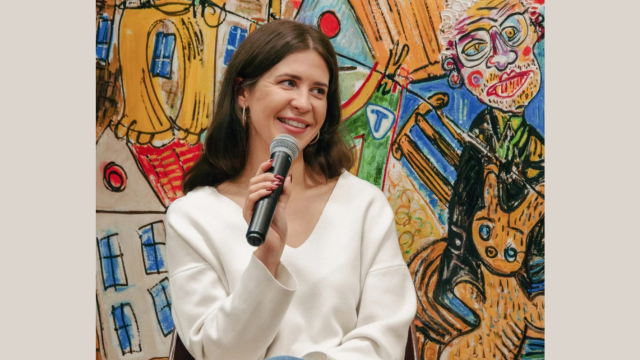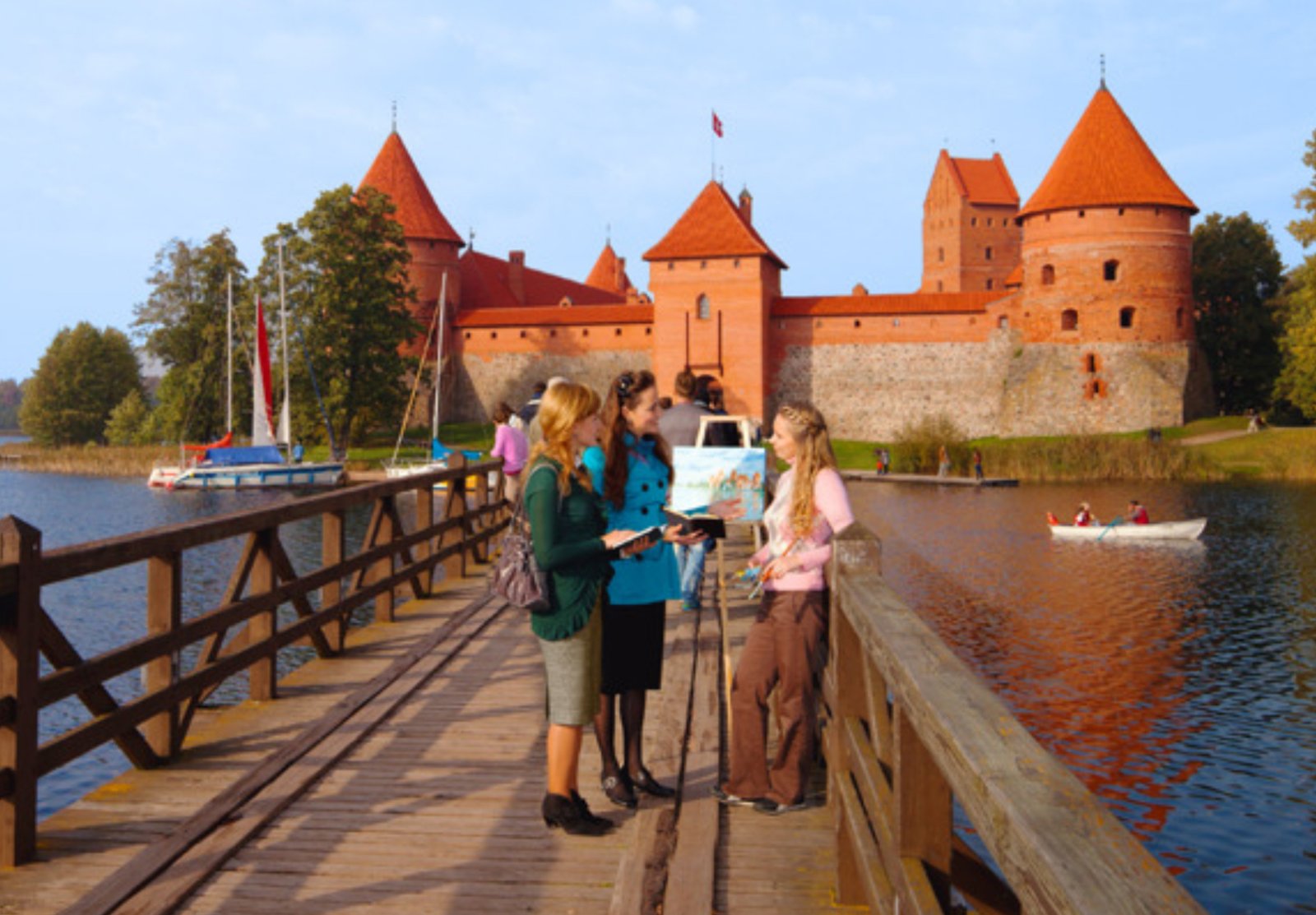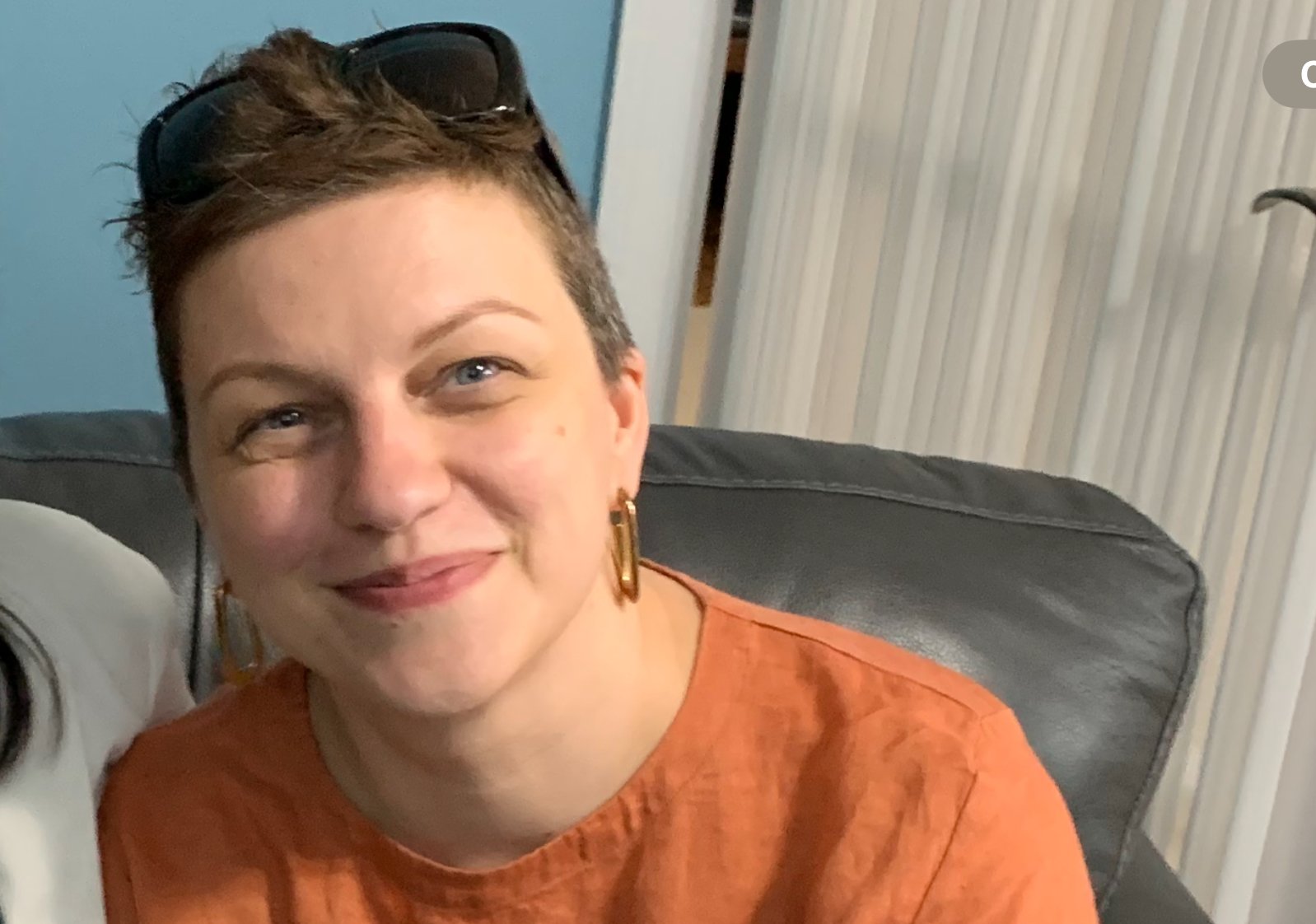A book used to criticize the Jehovah’s Witnesses tells us more about the author’s dysfunctional family than about religion.
by Rosita Šorytė
Article 2 of 3. Read article 1.

Renowned Italian scholar Umberto Eco identified three distinct levels or perspectives for analyzing a text: “intentio auctoris” (the author’s motivations), “intentio lectoris” (the average reader’s perception), and “intentio operis” (the social impact of the text). Eco asserted that the author’s intentions do not usually dictate how a text is perceived, as readers may have different interpretations. Moreover, a text’s social effects are not exclusively shaped by the average reader’s reactions; the media and those who promote a book may also significantly affect its perception.
We can categorize Deimantė Rudžinskaitė’s book “Pasaulietė” (“Secular”) accordingly. Distinct motivations articulated by the author in various interviews starkly contrast with the responses from a casual reader. I am aware of the typical anti-cult critiques aimed at the Jehovah’s Witnesses. After reading the reviews of “Pasaulietė,” I anticipated finding a summary of such criticisms within the book. However, this was not the impression I received while engaging with the text. I did not view it as a book primarily focused on the Jehovah’s Witnesses or religion. Instead, it presented the narrative of a defiant girl navigating a dysfunctional family, marked by an authoritarian and abusive mother, alongside an alcoholic and absent father.
Upon turning eighteen, Rudžinskaitė completely cut ties with her parents and enlarged family. She states that she feels no love for her parents, has not communicated with them in more than a decade, and is unsure whether they are still alive. The media should have contacted her relatives to obtain their viewpoint on Rudžinskaitė’s upbringing. Based on the reviews, it appears they did not do so.
Rudžinskaitė does mention the Jehovah’s Witnesses, recalling her childhood experience of joining her mother in evangelistic efforts in Šiauliai, their hometown. She expresses her frustration at being the daughter of a Jehovah’s Witness, which meant she could not celebrate birthdays or socialize with children whose parents were not part of the faith.
Interestingly, although most of the book is based on the author’s memoir, it includes surprisingly detailed insights into the highest levels of the Jehovah’s Witnesses organization, which may suggest Rudžinskaitė received some external “help.” On the other hand, she does not mention the elders or the organization of the congregations in Šiauliai or anywhere else in Lithuania, the only ones she had direct experience with.

The report about birthdays seems accurate since Jehovah’s Witnesses view them as pagan practices and refrain from celebrating. However, the statement that Jehovah’s Witness children avoid socializing with neighbors of different faiths needs some clarification, as it is not part of their teachings. Typically, they gather for community meetings twice a week and spend several hours each week on evangelism, allowing plenty of time for non-religious family and social activities.
Rudžinskaitė acknowledges that her mother’s educational principles differed from those of other Jehovah’s Witnesses. She notes that her mother’s sister, who was also a Jehovah’s Witness, permitted her two cousins to play with children of different faiths, watch secular cartoons that her mother deemed “demonic,” and engage with video games. This led her to wonder, “How can these two women—my mother and aunt—be so different and still be friends?” (“Pasaulietė,” Vilnius: Baltos lankos, 2024, pp. 43–4; unless otherwise indicated, references in the article are to this book).
She describes her friend Sara, whom she identifies as “a Jehovah’s Witness child,” as “living a normal life and planning her future,” while she felt “kind of stuck” (p. 114). Rudžinskaitė concludes that her experience “strongly differs from other Jehovah’s Witness children” (p. 114).
She characterizes her mother as “resembling the vengeful, cruel, judgmental, unforgiving, and unjust God depicted in the Old Testament,” stating, “She disappears, like Jehovah when I pray for his help” (p. 151). She mentions that her mother “imagines that in the family she plays the role of God” (p. 221).
Thus, these issues are presented as specific problems related to her mother rather than representative of the attitude of Jehovah’s Witnesses as a whole. Rudžinskaitė also reflects on her own struggles, revealing that since childhood, she resented her mother’s beauty, feeling that she herself was unattractive. She also had a complicated relationship with other relatives who were not Jehovah’s Witnesses.
There are additional inaccuracies regarding the Jehovah’s Witnesses in the book. Rudžinskaitė asserts that they are prohibited from reading non-religious literature and that their children cannot attend college. However, this is contradicted by both the literature of the Jehovah’s Witnesses and observations made within their communities. It also contradicts Rudžinskaitė’s report that her cousins, raised as Jehovah’s Witnesses, were planning to pursue higher education.

Jehovah’s Witnesses do read secular books, except for those considered immoral or pornographic. They caution that “the environment in some universities or similar centers of higher learning can pose moral and spiritual dangers,” advising parents and young adults to be prudent in their choices. In a pluralistic society, these concerns warrant respect. However, the elders do not make individual choices for young men and women or their families. Jehovah’s Witnesses indicate that “today, many of Jehovah’s Witnesses have received advanced secular education.”
Research on Jehovah’s Witnesses pursuing higher education has been conducted in Japan, Kazakhstan, and France. A 2024 survey of Jehovah’s Witnesses in Japan, age 18 and older, found that 36.7% completed post-secondary education (24.4% graduated from a junior college or higher professional school, 11.7% graduated from college or university, and 0.6% completed a postgraduate degree). A 2023 study from Kazakhstan revealed that 23.9% of Jehovah’s Witnesses attended college, with 19.1% earning a degree (Aldiyar Auyezbek and Serik Beisembayev, “View, Values and Beliefs of the Jehovah’s Witnesses: Analytical Report on the Results of the Study,” Astana: PaperLab Research Center, 2023, p. 8). In contrast, a study by the research firm SOFRES from 1998 indicated that only 7% of the French Jehovah’s Witnesses in their mid-30s held a BAC+5 (five years of post-secondary education after completing high school). Although this figure was significantly lower than Kazakhstan’s 2023 results, it should be noted that in 1998, just 12% of the same age group of French citizens had reached a BAC+5 level (“Témoins de Jéhovah, Rapport de synthèse, Octobre 1998,” Paris: SOFRES, 1988, p. 4). These studies were carried out among Jehovah’s Witnesses in good standing and demonstrate that there has been no prohibition against attending college within the organization.
Rudžinskaitė argues that her separation from non-Jehovah’s Witnesses was warranted by the belief that all outside the faith will perish in the forthcoming apocalyptic battle of Armageddon. However, this assertion is inaccurate. In response to the question, “Do Jehovah’s Witnesses feel that they are the only people who will be saved?” their literature states, “No.” It highlights that only God determines and knows who will be saved. Furthermore, Rudžinskaitė overlooks that Jehovah’s Witnesses believe that many virtuous individuals from past centuries will be resurrected and join the ranks of the saved. Most of these individuals were not Jehovah’s Witnesses, as they lived before the organization’s establishment.
While comments on Jehovah’s Witnesses are present, readers are more likely to remember the sections where Rudžinskaitė narrates the physical and psychological abuse she experienced at home, illustrating the harrowing impact of domestic violence. In an interview, she also mentioned that a cousin sexually harassed her during her early childhood. This experience may have influenced her behavior as a teenager. She notes that she lost her virginity to a young man at 14 and was discovered smoking marijuana.
Although readers may be confused about the issue, Rudžinskaitė is not a “former Jehovah’s Witness.” There is no infant baptism among the Jehovah’s Witnesses, nor are their children automatically considered part of the organization. As Rudžinskaitė mentions, minors can be baptized. However, she was not, although she attended some meetings and accompanied her mother to evangelistic activities. Her father was also not one of the Jehovah’s Witnesses at the time of the events she narrates, nor was her abusive cousin.

I concur with Milda Ališauskienė’s comment, a leading expert on religious minorities in Lithuania, made during her interview on the radio program “LRT Klasika”: “I did not find any evidence in the book that [Rudžinskaitė] suffered violence in the religious community; I think she suffered violence first of all at home.” As for the Jehovah’s Witnesses she met in her mother’s congregation, she describes them as “really good. Maybe the best in the world” (p. 132).

Rosita Šorytė was born on September 2, 1965 in Lithuania. In 1988, she graduated from the University of Vilnius in French Language and Literature. In 1994, she got her diploma in international relations from the Institut International d’Administration Publique in Paris.
In 1992, Rosita Šorytė joined the Ministry of Foreign Affairs of Lithuania. She has been posted to the Permanent Mission of Lithuania to UNESCO (Paris, 1994-1996), to the Permanent Mission of Lithuania to the Council of Europe (Strasbourg, 1996-1998), and was Minister Counselor at the Permanent Mission of Lithuania to the United Nations in 2014-2017, where she had already worked in 2003-2006. In 2011, she worked as the representative of the Lithuanian Chairmanship of the OSCE (Organization for Security and Cooperation in Europe) at the Office for Democratic Institutions and Human Rights (Warsaw). In 2013, she chaired the European Union Working Group on Humanitarian Aid on behalf of the Lithuanian pro tempore presidency of the European Union. As a diplomat, she specialized in disarmament, humanitarian aid and peacekeeping issues, with a special interest in the Middle East and religious persecution and discrimination in the area. She also served in elections observation missions in Bosnia and Herzegovina, Georgia, Belarus, Burundi, and Senegal.
Her personal interests, outside of international relations and humanitarian aid, include spirituality, world religions, and art. She takes a special interest in refugees escaping their countries due to religious persecution and is co-founder and President of ORLIR, the International Observatory of Religious Liberty of Refugees. She is the author, inter alia, of “Religious Persecution, Refugees, and Right of Asylum,” The Journal of CESNUR, 2(1), 2018, 78–99.
Languages (fluent): Lithuanian, English, French, Russian.



